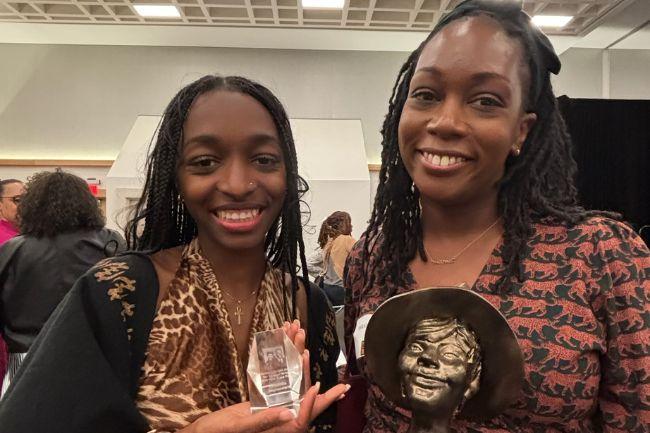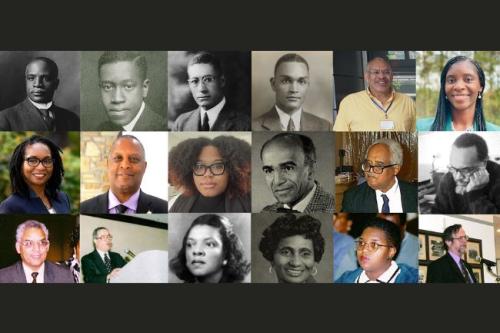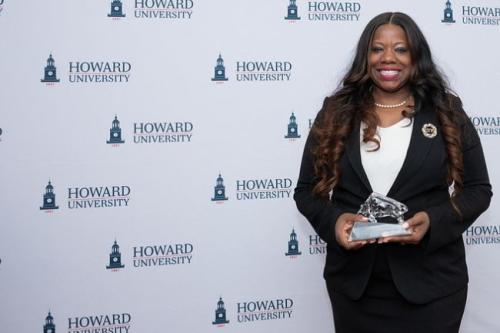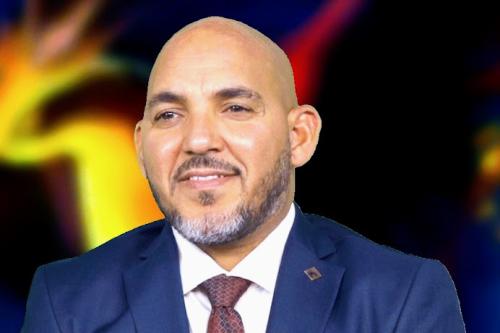Howard University proudly recognizes two outstanding members of its literary community for their accomplishments at the Hurston/Wright Foundation 2025 Legacy Awards. The Hurston/Wright Foundation, named after Black literary pioneers Zora Neale Hurston and Richard Wright, has honored Black writers for 35 years.
Among this year’s award recipients are Sarai Johnson (B.A. ’14), first-year writing lecturer of the English Department, and Becca Haynesworth (B.A. ’25), recent graduate of the Cathy Hughes School of Communications.
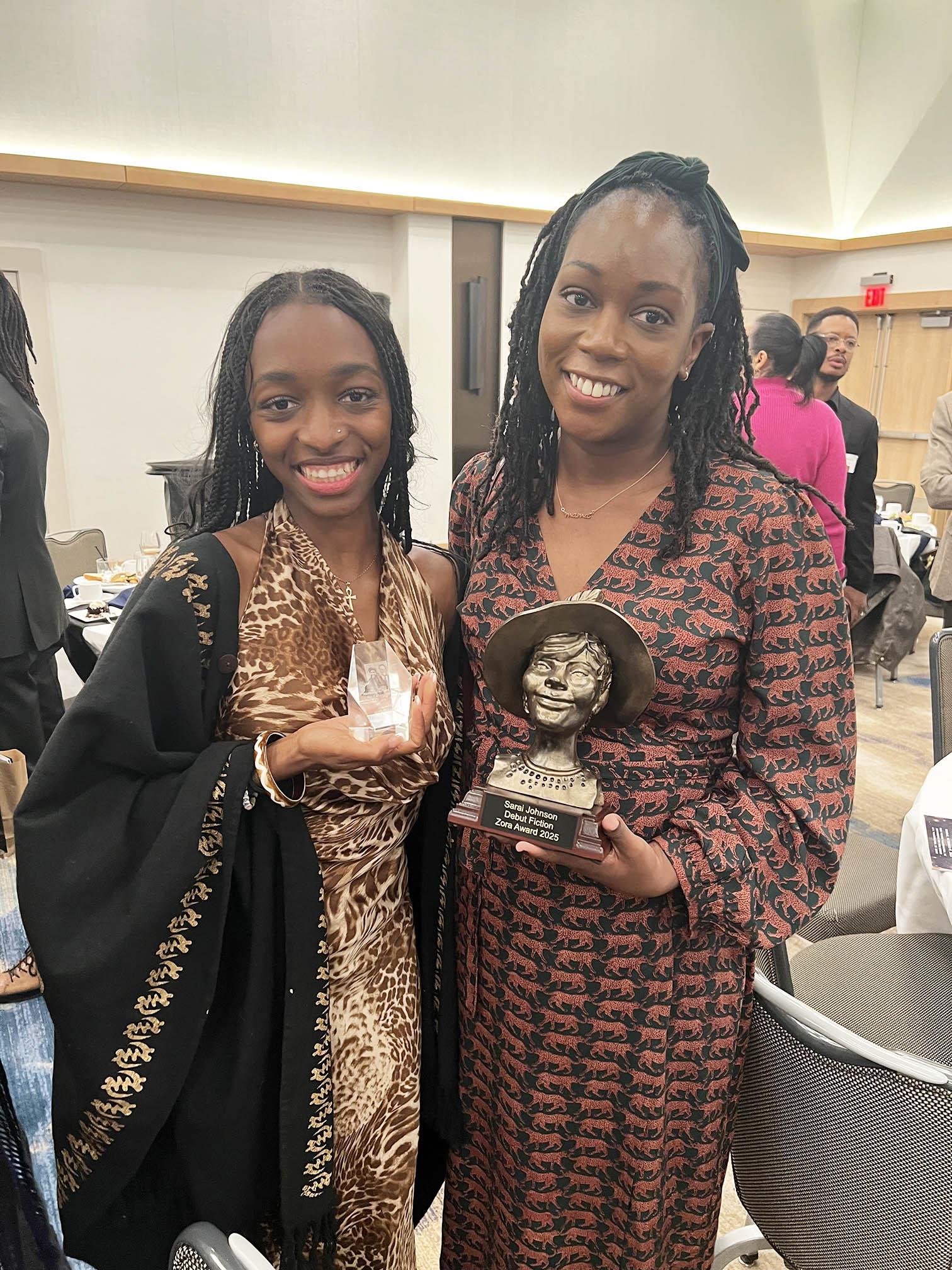
A Howard alumna and current member of the faculty in the Department of Literature and Writing, Johnson won the Zora Award for Debut Fiction for her first novel, “Grown Women.” The novel chronicles the lives of four generations of complex Black women and their journey to understanding motherhood, daughterhood, generational trauma, and healing. For the first time in the award’s history, a prize of $20,000 was included to recognize the emerging author’s work.
“I’m grateful to receive this award named for one of my idols, a true icon of American literature. I’m moved by Zora Neale Hurston’s story and her legacy, and I am grateful to be on the shoulders of giants like herself,” Johnson expressed.
Similarly, Becca Haynesworth regards this award as an affirmation of her devotion to her craft and her calling as a creative.
Haynesworth, the former poetry editor and designer of the student-run literary journal, The Amistad, won the Hurston/Wright College Writers Award in Fiction for her piece, “Fly'n Home,” an afro-futuristic short story detailing a supernatural quest set in late 19th century South Carolina. As a recipient of the foundation’s original award, she now joins a legacy of 92 Black artists in fiction and poetry, many of whom have established themselves in the literary world. Some past honorees include “An American Marriage” author Tayari Jones, “Queen Sugar” author Natalie Baszile, and “Wild Hundreds” author Nate Marshall.
“Early this year in January when I submitted “Fly’n Home” to the foundation along with several other journals, I was unsure if I had made the best decision to quit a job I was working to fully pivot into following a path that prioritizes my artistry,” Haynesworth recounts. Winning the award helped her believe she made the right choice.
“It also reminds me of the importance of leaning on the wisdom and lived experiences of my ancestors like Zora Neale Hurston and Richard Wright, and finding creative replenishment in their literary masterpieces that illuminate their personal fortitude,” Haynesworth said.
Dr. Carole Boyce-Davies, the chair of the Department of Literature and Writing, attended the ceremony with the hope that there might be some cause for celebration for the Howard faculty who joined her at the Howard table.
“This significant showing continues the long legacy of excellence in creative and intellectual productions for which our department and the university is well recognized,” Boyce-Davies said.
As the two writers step into the light of their well-earned acclaim, they do more than extend Howard’s storied line of literary brilliance — they renew it. Their words join a centuries-deep tradition of those who have written Howard’s legacy into the wider world. In their craft, we glimpse both homage and horizon: a reverence for the voices that came before and a fearless reaching toward what literature — and Howard — can yet become.


